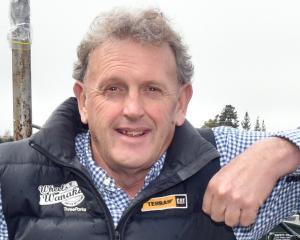
University of Otago physicist Prof Harald Schwefel said at present, weather forecasters measured changes in atmospheric gases above Antarctica using a Nasa satellite with a special instrument that could detect the faint thermal glow of climate gases — particularly ozone.
But the satellite was more than 20 years old and was losing orbit.
It was expected to burn up over the Pacific next year, and Nasa has said it cannot fund a replacement.
‘‘The loss of this data will reduce the accuracy of global weather forecasts, causing significant financial, infrastructure and human losses,’’ Prof Schwefel said.
‘‘Imagine the effects of Tropical Cyclone Gabrielle without the warnings we received.
‘‘The existence of a cyclone is probably easy to say. But where exactly it will make landfall, that's very difficult to say.
‘‘What happens in the atmosphere over Antarctica can have dramatic effects on weather systems here in New Zealand, such as the landfall of powerful tropical storms.
‘‘Ozone plays a significant role in these larger weather patterns, and we are about to lose a vital tool in our predictive arsenal.’’
So, he and fellow physics researchers at the university are building a new, smaller replacement satellite, and the Ministry of Business Innovation & Employment Endeavour Fund has granted them $10,525,544 to help with the project.
He said the new satellite would integrate quantum technology and atmospheric science with innovations in the New Zealand aerospace industry.
The aim was to create a device that would cost less, be more compact, more energy-efficient and detect a wide range of atmospheric gases.
It was hoped the replacement satellite would be ready for launch within the next 5-10 years.
He was delighted with the funding and said it showed how important the project was for New Zealand.
Prof Schwefel’s grant was one of four for University of Otago research programmes, which would receive about $10m each, over the next five years.
Marine scientist Prof Chris Hepburn received $10m to help rebuild productive coastal economies through regenerative mariculture (marine aquaculture).
Otago physicist Prof Craig Rodger received $10,902,308 to help detect solar tsunamis by creating next-generation space weather prediction technologies.
It would also help produce the knowledge and tools needed for government disaster managers and sectors such as aerospace and electricity grid operators, to prepare, respond and lead recovery efforts following damage by solar tsunamis.
Otago microbiologist and immunologist Prof Vernon Ward received $9,994,226 to help create broad-spectrum antivirals, aimed at combating human and animal viral diseases.
It was hoped the project would establish a pipeline for antiviral drugs from New Zealand.












